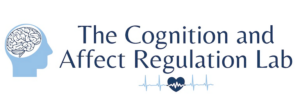Ambulatory Phenotyping with Real-Time Indices of Discordant Affect Regulation: Exploring Opportunities for Targeted Intervention in Depression
PI: Jonathan P. Stange, Ph.D.
Sponsor: National Institute of Mental Health (R01)
A core feature of depression is persistent sadness, which often results from difficulty successfully regulating affect and physiology. Heterogeneity in the course of illness and response to treatment in depression is likely due to the presence of multiple phenotypes that confer risk via distinct mechanisms. This research will identify biobehavioral mechanisms that explain why individuals with depression show diverse patterns of success or failure with regulating their affect and their parasympathetic nervous system. We will identify subgroups based on dimensions of success with regulation in everyday life, examine brain mechanisms that underlie these groupings, and will test a real-world intervention to improve regulation success. This knowledge will be critical for understanding the heterogeneity in depression and for developing real-world interventions to prevent or improve the course of depression in specific phenotypes, toward the goal of precision medicine.
Neural Mechanisms of Emotion Regulation Flexibility and Success in Everyday Life in Depression
PI: Ellie P. Xu
Sponsor: National Institute of Mental Health (F31)
Major depressive disorder (MDD) remains a prevalent, debilitating, and recurrent disorder that is characterized by cognitive and behavioral inflexibility, the failure to adapt thinking and behavior to meet environmental demands. Given that individuals with a history of MDD often continue to experience ineffective emotion regulation during remission, this study aims to develop a novel theory-based measure of emotion regulation flexibility in everyday life, and to examine its neural underpinnings. By advancing our understanding of real-world emotion regulation flexibility and its precise neural mechanisms, this study will elucidate novel, ecologically-valid treatment targets for depression, that could be modulated using neurobehavioral interventions to improve flexibility and lessen the disease burden of recurrent MDD.
From Networks to the Real World: Integrating Neural and Autonomic Processes of Loss
PI: Jonathan P. Stange, Ph.D.
Sponsor: National Institute of Mental Health (K23)
This study links neural circuitry underlying cognitive control and affective processing with autonomic and behavioral measures of affect regulation in response to loss-related stressors in the laboratory and in daily life, among individuals with remitted depression and never-depressed control participants. The goal of this work is to improve the mechanistic understanding of cognitive-affective risk phenotypes for depression, which will inform the timely prevention, early detection, and advancement of novel treatments for affect dysregulation in depression.
Probing Autonomic and Network Mechanisms of Emotion Regulation in Major Depressive Disorder
PI: Jonathan P. Stange, Ph.D.
Sponsor: Brain and Behavior Research Foundation (NARSAD Young Investigator Award)
Despite having a greater need for effective emotion regulation, individuals with major depressive disorder (MDD) may experience less benefit from attempts to regulate than individuals without MDD, leading to prolonged negative emotion and suppressed parasympathetic nervous system activity. By identifying biomarkers of problematic responses to sadness, treatments can be developed that allow for regulatory intervention earlier than when relying exclusively on individuals’ self-reports of these processes. This study aims to identify (a) brain networks important in disrupted emotion regulation that can be targeted to improve regulatory success, and (b) parasympathetic indicators of disrupted network functioning that are less invasive and more cost-effective to evaluate than fMRI. This study has important implications for the identification of neural and psychophysiological mechanisms of emotion regulation that have strong potential for translation to novel interventions.
Regulation in the Real World: Real-Time Assessment of Suicide Risk in Context
PI: Jonathan P. Stange, Ph.D.
Sponsor: American Psychological Foundation (Visionary Grant)
Suicide is the second leading cause of death among young adults in the United States. Difficulties with regulating strong negative emotions is a candidate mechanism by which numerous risk factors may lead to suicidal behavior. However, existing models of suicide risk have had only modest success, suggesting the need to go beyond traditional laboratory-based methods by measuring emotional processes in real-world contexts that are closer in time to the occurrence of suicidal ideation, and that have greater ecological validity. This study uses ambulatory assessment, involving wearable technology to measure physiological and behavioral components of emotion regulation in participants’ daily lives, among individuals with major depressive disorder who have experienced suicidal ideation within the past month. Participants will complete seven days of ambulatory assessment during which putative biological mechanisms of emotion regulation, behavioral factors, and environmental factors are assessed across the day. By using an innovative, person-centered approach, this study will detect contexts when individuals are at particular risk for suicidal ideation, and will evaluate which individuals with ideation may be at risk for suicide attempts. These data have important implications for the development of personalized suicide prevention interventions to identify possible periods of suicide risk in real time, and to intervene to improve affect regulation and related factors in ways that affect daily functioning, thereby reducing risk.
Seeley G. Mudd Building
3620 McClintock Ave
Los Angeles, CA 90089
